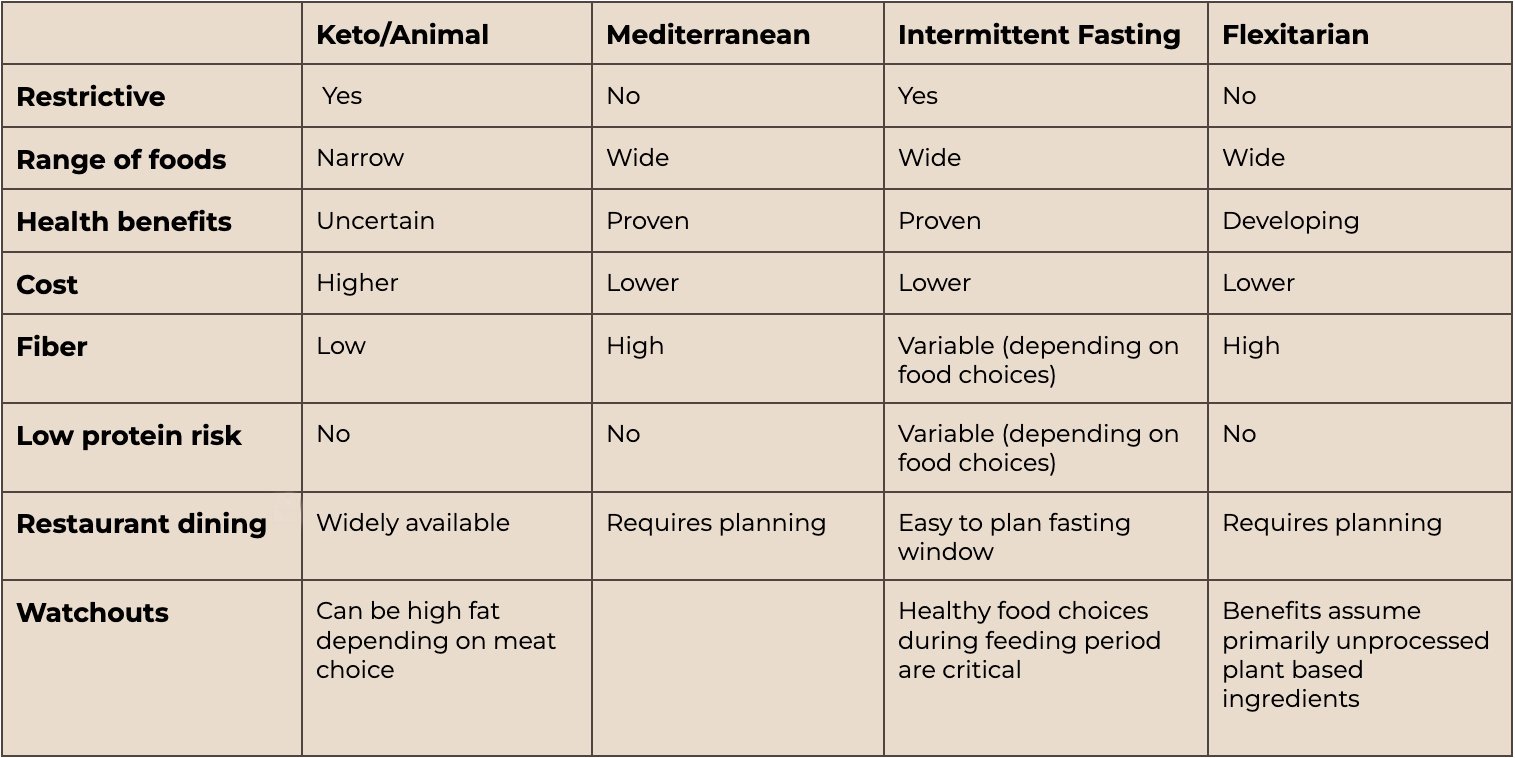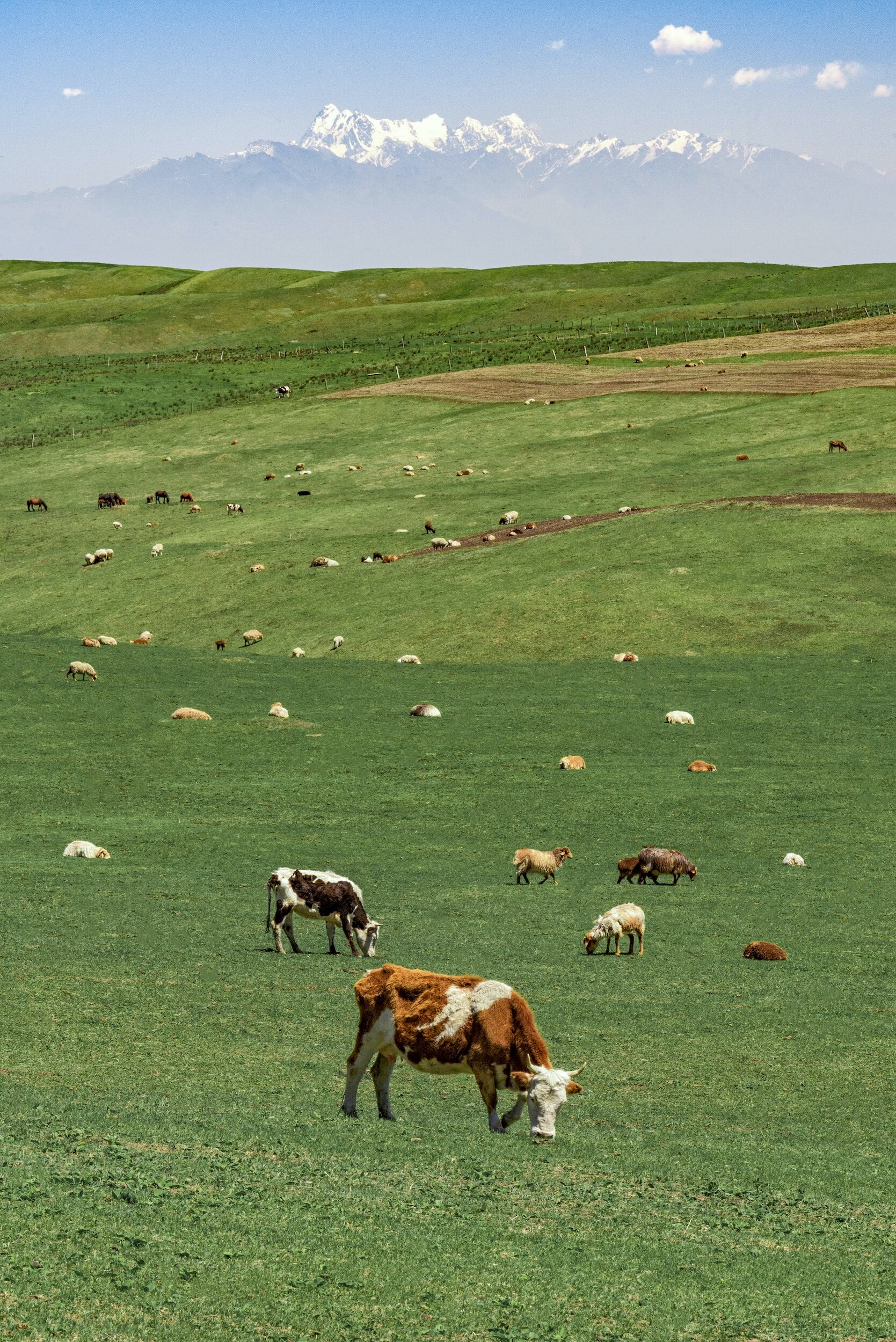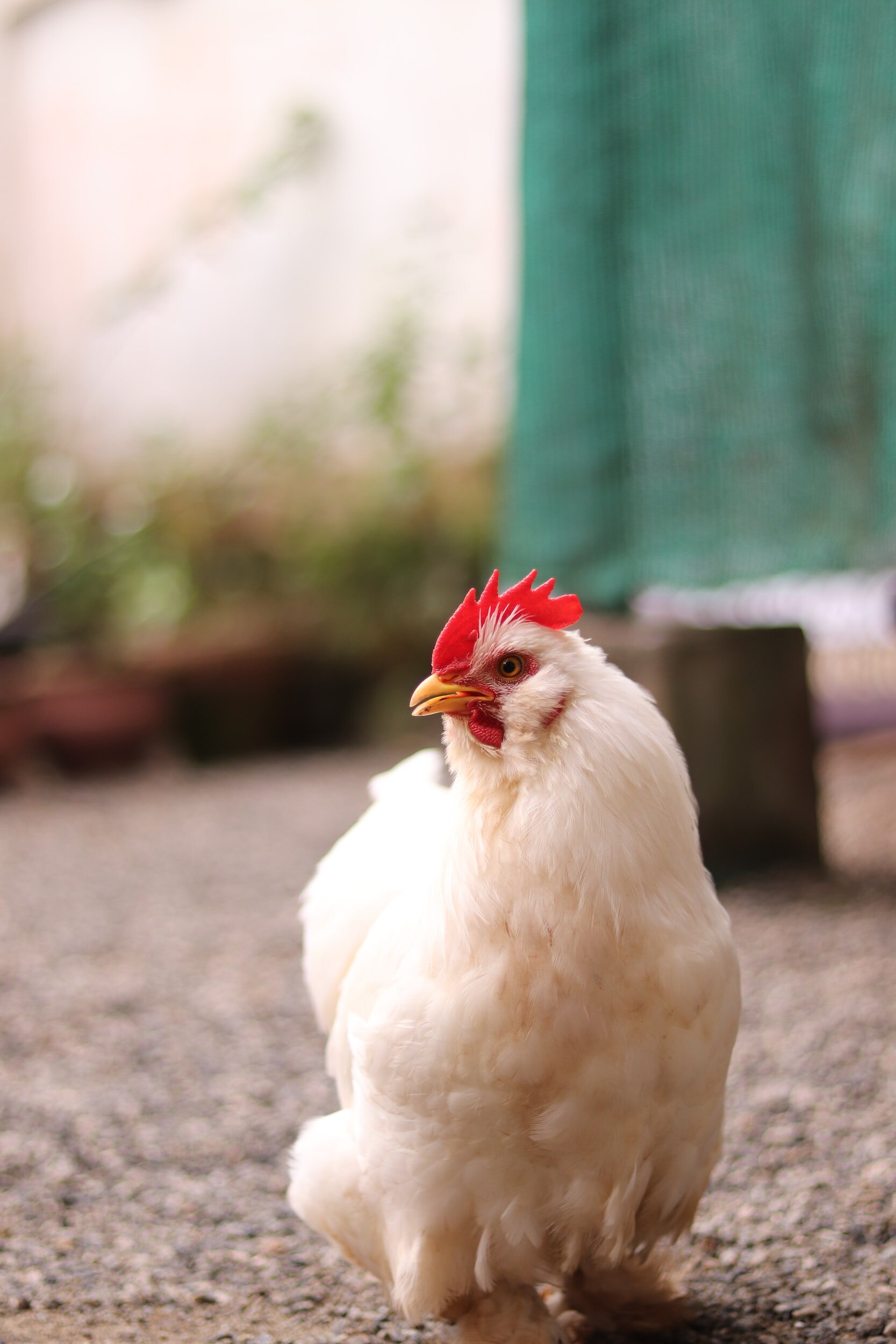The facts.
-
January is the time for New Year’s Resolutions!
-
30% Of people will make a New Year’s resolution that is diet or weight based
-
48% Of people will make a New Year’s resolution that is fitness based
-
46% Of people stick with their resolutions 6 months later
The big picture.
According to the BBC, the most common diets of 2024 will be:
-
Keto or animal based
-
Mediterranean
-
Intermittent fasting
-
Flexitarian
Forbes on the other hand predicts that well rounded diets with plants, protein, and a focus on sustainable food will be top of mind for consumers. What does this mean as you think about your food choices? How do you think about sustainable eating? What kind of sustainable diet is kind for you while being kind to the earth?
Popular diets in 2024.
Keto or Animal based – These are two different diets but are related in that they rely heavily on animal based proteins for food. The Keto (or Ketogenic Diet) focuses on cutting carbs to send the body into a state of ‘ketosis’, so that one burns fat for energy; while the animal based diet focuses on getting high levels of protein in the diet from animal products. In both, people tend to rely on animal proteins as a main source of energy.
Mediterranean – This diet is primarily plant based with healthy fats and meat sources, primarily being fish. It is low in processed foods, sugars and high fat items such as red meat. It is based on the region of the world where this is a lifestyle and people tend to be healthier in general.
Intermittent fasting – This diet focuses on fixed periods of fasting to allow for cell autophagy (recycling and clean up of old cells). There are many approaches ranging from restricted eating windows (fast for 16h, eat within an 8h window), days of fasting (5:2) to more restrictive forms. These restricted periods naturally lead to reduced caloric intake and hence potential weight loss, though the quality and types of food eaten does matter.
Flexitarian (Semi-vegetarian) – This diet is one which is primarily vegetarian but with the flexibility of eating meat at intervals. There is a focus on unprocessed plant based ingredients with legumes, beans and tofu. Meat, poultry and fish are consumed intermittently at the discretion of the individual hence the term “flexitarian”.
What sustainable diet is best for your health?
There is no perfect diet. Generally speaking, choosing one which incorporates a variety of foods, is easy to implement, and effective at achieving and maintaining health is a ideal. Here is a list of the pros and cons of the various diets as it relates to lifestyle and health.
What about from an environmental perspective?
All food has an environmental footprint – each item takes water, nutrients and land to grow and requires processing to make them ready for human consumption. Some foods are more energy dependent than others. Take a look at the graphs below and compare how much the water, land and greenhouse gasses toll of different types of common foods.
Sustainable food comparison charts:
Generally speaking:
-
Meats from large and medium sized animals (cows, goats,lamb) and dairy products (esp cheese which needs a lot of processing) are the most environmentally taxing.
-
Foods such as eggs, grain, pulses and tofu are the least environmentally taxing.
Chicken is an interesting one as on an individual basis, it is not terribly taxing on the environment BUT quantities matter. A recent NYTimes article highlighted the huge increase in chicken and cheese consumption in the USA and its negative impact on our groundwater.
Read our prior article on the relationship between cheese and water here.
Our groundwater (Aquifers) provides the bulk of our water supply and these are significantly overstressed by agriculture. Water levels are falling to their lowest in history and wells are getting deeper and deeper to extract water.
According to the NYTimes. “A wealth of underground water helped create America, its vast cities and bountiful farmland. Now, Americans are squandering that inheritance.”
The choices.
Life-focused
If your focus is on being kind to living things…
-
Avoid consumption of animal products as much as possible.
-
There are many resources available to successfully follow a sustainable plant-based diet.
Earth-focused
If your focus is on the earth and environment…
-
Make food choices which have a lower environmental impact based on the graphs above (see resources below).
-
Animal-based foods account for 57% of those emissions, and plant-based ones make up 29%.
Holistic
If you are considering an integrated approach…
-
In addition to the above, reduce food waste.
-
Take a hard look at your choices, eating a beef burger on a compostable plate isn’t eco-friendly (though clever marketing makes you feel better about it).
Resources
General Reading
Plant-based Resources
-
Veganish – How to ease into a plant based diet
-
Plant Based Juniors – How to feed your kids well with delicious plant based meals
Diet and Environment
-
Carbon Brief – world experts observations on the connection between food and climate
-
Fork Ranger – Focused on diet and climate impact
Get Inspired!
Plant-based influencers:
Plant-forward influencers:









